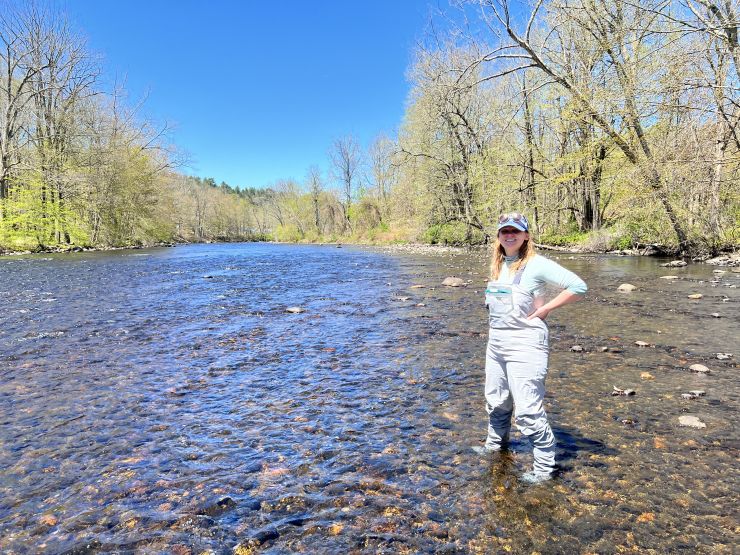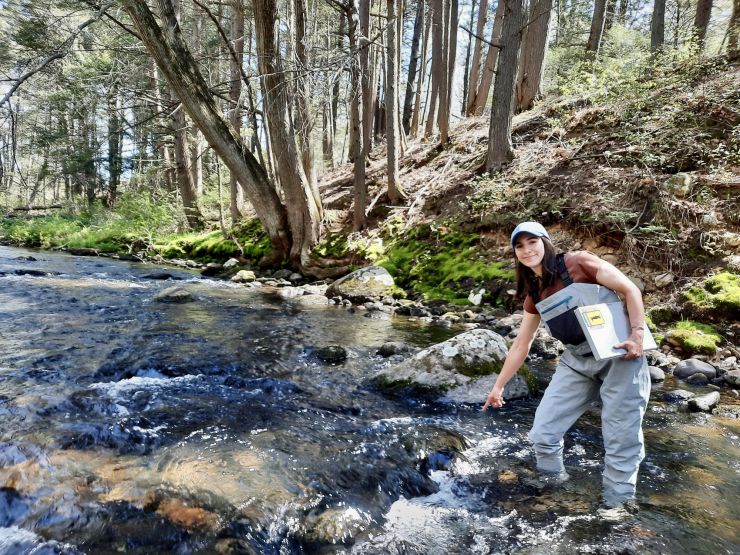WATER QUALITY MONITORING
FRCC in conjunction with Farmington River Watershed Association (FRWA) continues - with volunteers and interns from surrounding towns - to conduct water quality monitoring of the river. There are 15 monitoring locations in the Upper Farmington River Wild & Scenic segment on the river and tributaries. Water quality monitoring has been conducted by FRWA on the Farmington River Watershed for the past 18 years. Nonpoint source runoff is the primary water quality concern in the watershed. Water quality in some watershed streams is particularly important to maintain since the Farmington River Watershed contains the water for the Greater Hartford drinking water supply, serving 400,000 people.
Bacteria can be a good indicator of nonpoint source pollution, and therefore monitoring E. coli is conducted throughout the Farmington River and its tributaries. The data is shared with partners including the CT DEEP and helps educate watershed residents. The monitoring program in the Upper Wild & Scenic Farmington River watershed is administered by FRWA Conservation Director, Laura Hart. Data from water samples, temperature, and macroinvertebrates are collected and analyzed.
Detailed information can be found in the Water Quality Report from 2022 online at frwa.org/resources
With this information, FRCC and FRWA will make plans to work with towns, landowners, and other interested parties to find collaborative ways to remediate the sources of pollution through green infrastructure soltuions, such as rain gardens and riparian buffers.

Laura Hart, Conservation Director at FRWA, in the Wild & Scenic Farmington River in New Hartford, CT.
Road-Stream Crossings: FRWA has been continuing work assessing road-stream crossing conditions within the Farmington River Watershed in order to determine structural integrity as well as the ability of passage for aquatic and terrestrial wildlife. Road-stream crossing assessments can be useful in determining which crossings may pose a threat to public safety during storm events, and they also provide insight into the ability of aquatic organisms such as diadromous fish to move throughout the watershed. Inadequately designed crossings may also fail in the event of flood conditions, which can cause human safety risks and property damage. FRWA performs stream crossing assessments through the North Atlantic Aquatic Connectivity Collaborative (NAACC). The FRWA intends to prioritize crossings for repair or replacement within the Farmington River Watershed. In 2022, stream crossing assessments were performed in the town of Canton, with 7 completed. FRCC supported the NAACC database with a membership. Results can be viewed on NAACC’s website.

